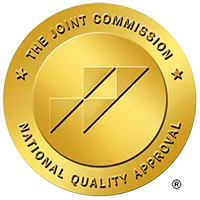Understanding Cocaine Addiction
How Cocaine Affects the Brain and Body
Cocaine is a highly potent and addictive stimulant that can cause a rush of euphoric effects on the brain, including alertness, excitement, restlessness, irritability, and anxiety, due to dopamine production. Prolonged use of cocaine causes the brain and body to develop a dependence on the substance, relying on it for these feelings of euphoria and happiness. One may experience loss of appetite, high blood pressure, high heart rate, heart conditions, and convulsions, among other physiological effects.
Break Free From Addiction
Take the first step toward a healthier, substance-free life with our addiction treatment programs.
Signs and Symptoms of Cocaine Use Disorder
Behavioral Signs of Cocaine Abuse
Cocaine abuse can be noted by several behavioral signs, such as persistent social problems, irresponsibility when it comes to work, home, and school obligations, and centering one’s life around cocaine use. This includes seeking out the substance continuously and using the substance in hazardous situations.
Physical and Mental Health Consequences
You may also experience strong cravings and withdrawal symptoms when you are not using the substance, leading to unsuccessful efforts to cut down or control cocaine use. Persistent use can create a higher tolerance for the drug, which can affect your mental health as your brain begins to rely on cocaine for dopamine production. Depression, anxiety, and physical health depletion can all result from cocaine abuse.
Seeking Help for Cocaine Addiction in Colorado
Why Choose Red Rock Recovery in Colorado?
At Red Rock Recovery Center, we create a community-centered treatment environment that addresses all of your needs from addiction and mental health to social and emotional health. We make sure you receive quality, effective care that goes beyond treating your addiction and helps you improve your whole life.
Our Commitment to Recovery-Focused Care
The recovery-focused care at Red Rock Recovery Center centers your life around the healing process to help you achieve your recovery goals. Each of our structured treatment programs aims to better all areas of your life to help you sustain sobriety and find a new, healthy purpose while connecting you with a recovery-focused community.
The Red Rock Recovery Colorado Treatment Approach
Individualized Treatment Plans
At Red Rock Recovery Center, we treat every client as an individual to ensure their recovery efforts are sustainable. Every client is different, and we work with you to create a treatment plan that is personal and right for you and your needs.
Evidence-Based Therapies for Cocaine Addiction
Cognitive-behavioral therapy (CBT), group counseling, and individual counseling are evidence-based therapies to help you overcome cocaine addiction. CBT works to help you acknowledge how your negative thoughts and emotional patterns influence your behaviors, allow these patterns to pass by without impulsively acting on them, and practice healthy behaviors to overcome difficult feelings. Group counseling connects you with others overcoming addiction, helping you share experiences and growth to motivate and heal together.
Medication-Assisted Treatment (MAT) Options
MAT uses a combination of behavioral therapies, counseling, and medication management to treat substance use disorders. This option is recommended for those recovering from heroin or opiate addictions as it lessens the severity of withdrawal symptoms to make recovery as comfortable as possible. No matter your needs, we have a treatment option for you.
Detoxification and Withdrawal Management
Safe and Medically Supervised Detox
The detox stage stabilizes your physical body as it adjusts to the absence of drugs and alcohol. Red Rock Recovery Center’s detox is done in a safe and professional environment to help manage withdrawal symptoms and reduce the possibility of relapse. This phase prepares you for the mental-emotional work ahead of you in the recovery journey.
Building a Foundation for Long-Term Sobriety
Relapse Prevention Strategies
It is important to heal all areas of your life to prevent relapse post-treatment, which is why we value the whole-person approach to help you heal your physical, mental, emotional, and spiritual health. Red Rock Recovery Center is always there for you, too, even in post-treatment life, to keep you on track and sober.
The Importance of Community and Support
Community is the heart of our treatment, and together, we can heal and find a new purpose in life. Here, you find a supportive community that motivates one another and creates a safe space to share your recovery experiences. From group therapy to everyday living, you learn how to come together as one to heal and grow.
Developing Healthy Coping Mechanisms
Healthy coping mechanisms, such as breath work, creative outlets, and physical exercise, are important and necessary to implement into your life for sustainable recovery. Our whole-person approach helps you practice and develop habits that support your recovery goals and realistically fit into your life.
Holistic Therapies for Healing and Growth
The whole-person approach is valued at Red Rock Recovery Center for you to heal all areas of your life both related and unrelated to your addiction. Some of our holistic therapies offered are mindfulness, yoga, and outdoor activities to keep the mental, emotional, and physical bodies healthy.
Living a Life in Recovery at Red Rock Recovery Colorado
Our structured programs keep you focused on your health and recovery goals while re-learning how to live a healthy, happy life without drugs. Here, you are an active and valued community member who adds to the Red Rock Recovery Center culture.
Here at Red Rock Recovery Center, we create a safe, comfortable space for you to recover from your addiction and lead a healthy life. Call us today at (855) 218-7588 to learn more about our treatments for cocaine addiction and how our community-centered programs and whole-person approach can help you.




